Learn more about how test runs work in TestLodge, including how to create, configure, execute and re-run test runs within the software.
A test run is a collection of one or more test suites. They are used to verify each test case by marking the case as “pass”, “skip”, or “fail”. Test runs are where the testing actually happens.
Once you finish a test run, you can view reports on the results of the tests you ran.
Creating a Test Run
Here’s a quick overview of creating a Test Run:
To create a new test run, select the Test Runs tab and click New test run.
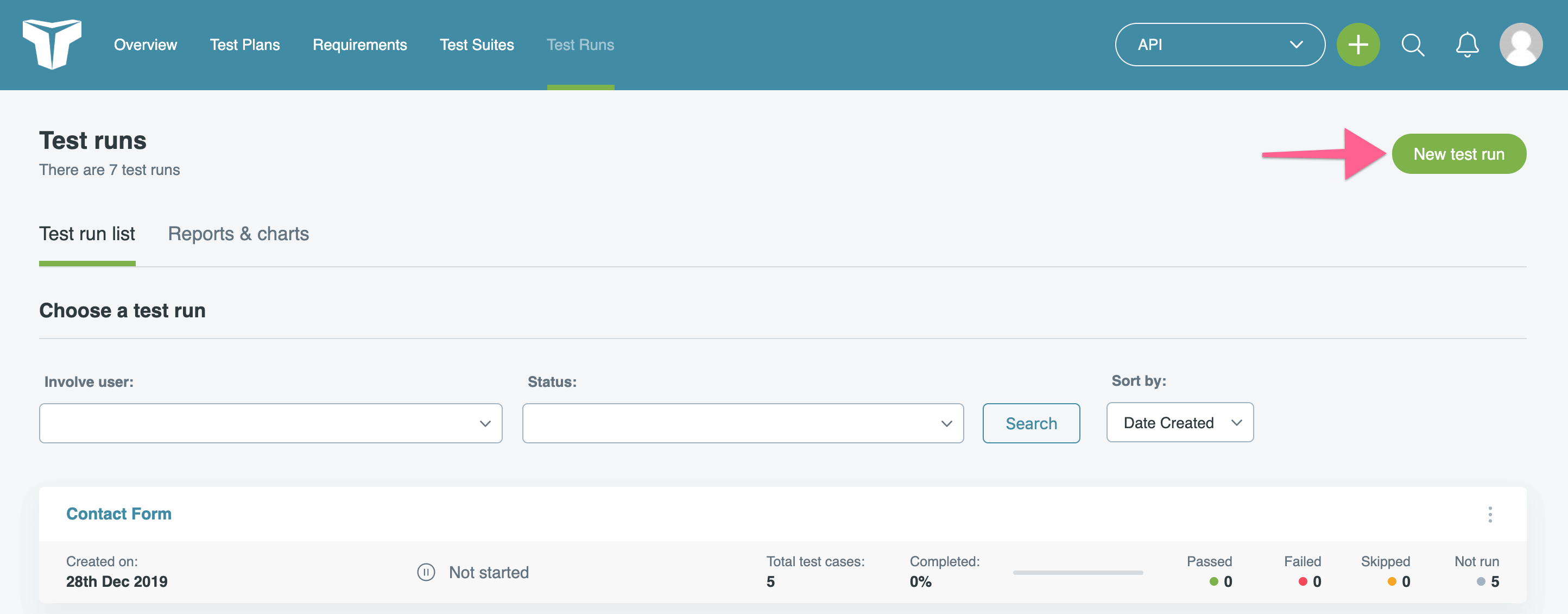
Here you can give the test run a name, assign it to a user, and associate it with a test plan.
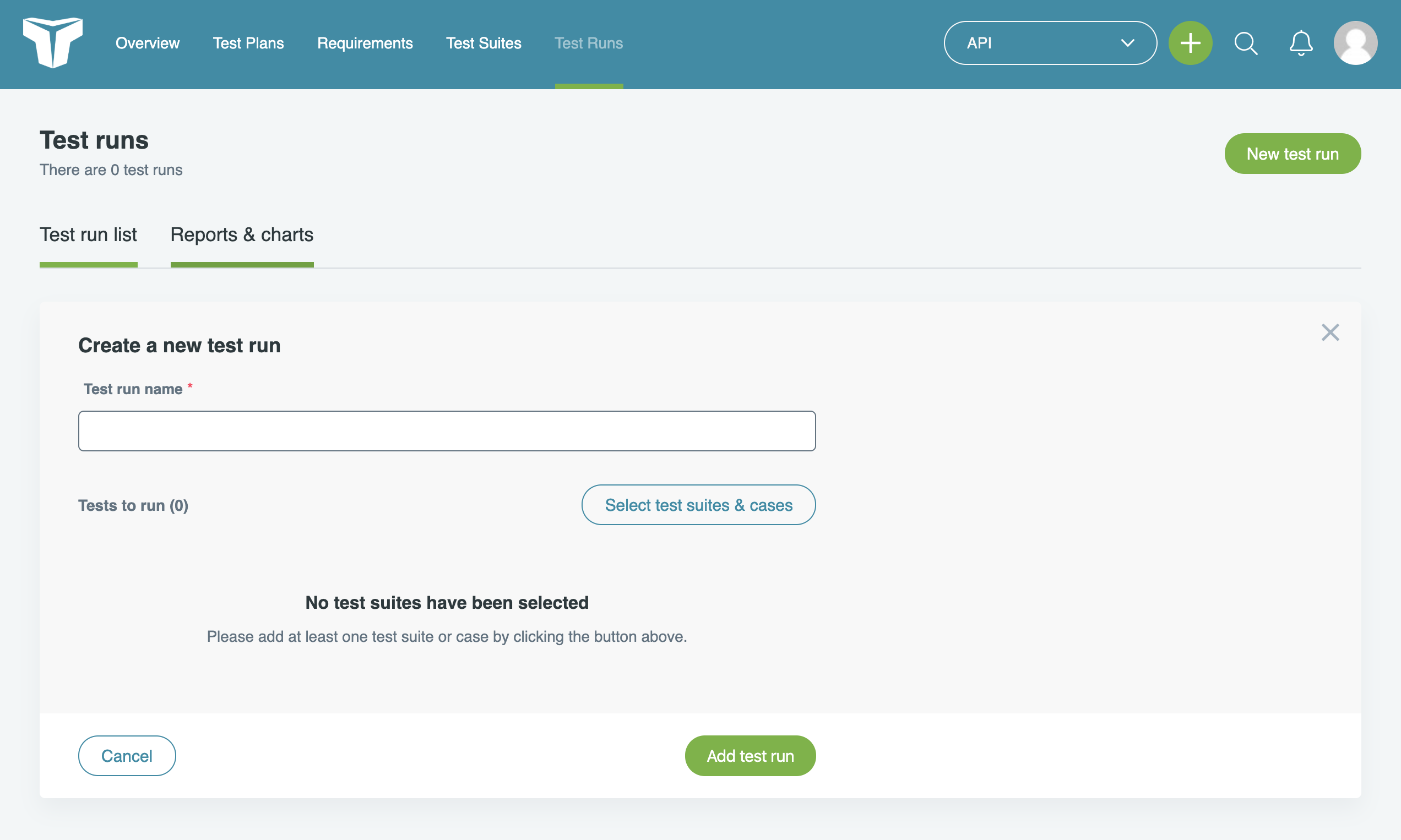
Next, you’ll need to add at least one test suite or a test case to the run. You can also add multiple test suites to the run if you need to test a number of different areas of the product.
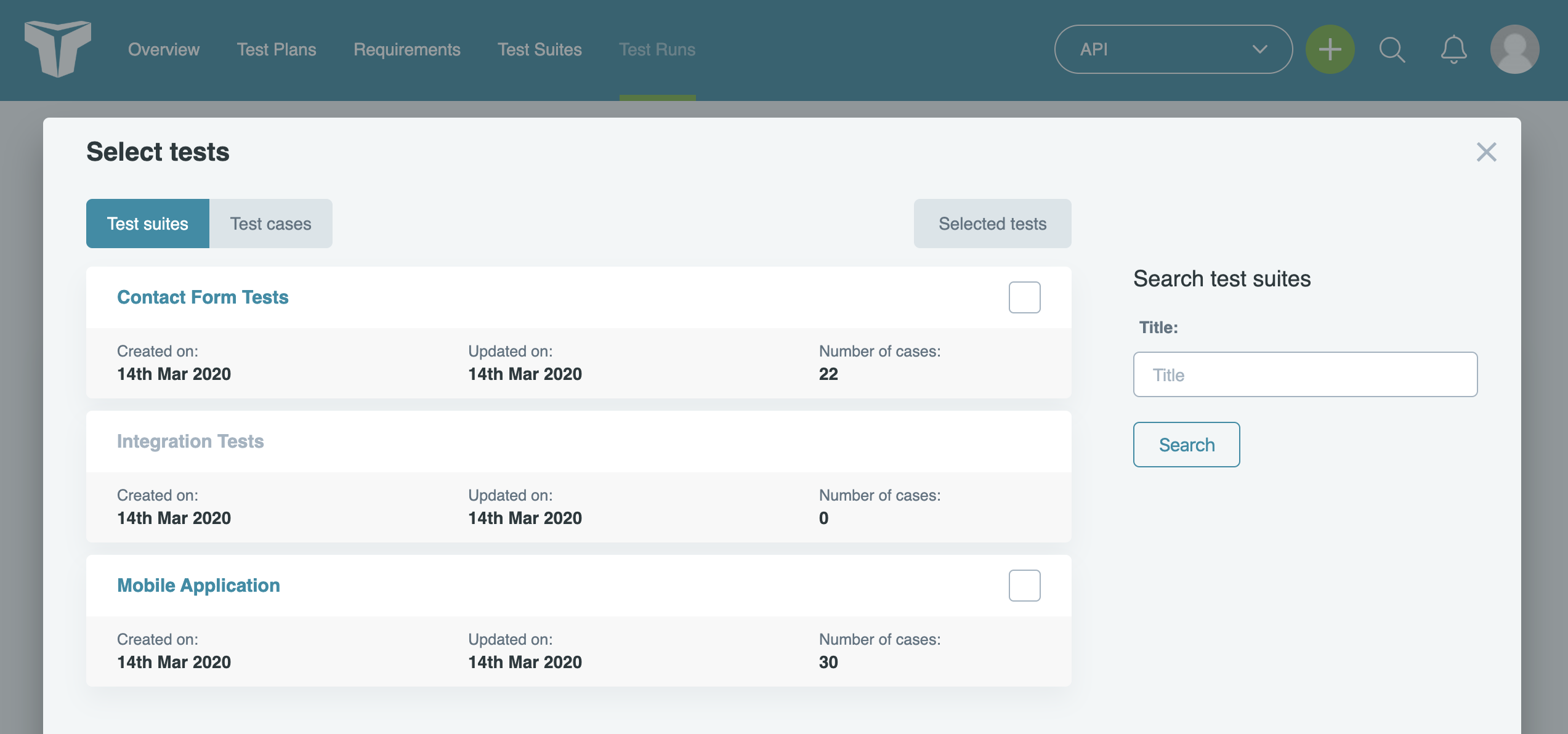
Test Run Options
Test runs are flexible. You have the option to run all of the tests cases in the run, or you can select individual test cases. You can also assign individual test suites to different users. For example, you can assign one tester to test the “contact form”, and you can assign another tester to test the “order form”.
Test Configurations
TestLodge allows you to set ‘Test Configurations’. You can think of test configurations as different variations of the tests you need to run. Maybe your tests need to be run on multiple browsers. You can have a test configuration for each of those tests without needing to recreate the entire test suite.
To select a Test configuration, click the 3-dot menu next to a test suite and click Select test configuration.
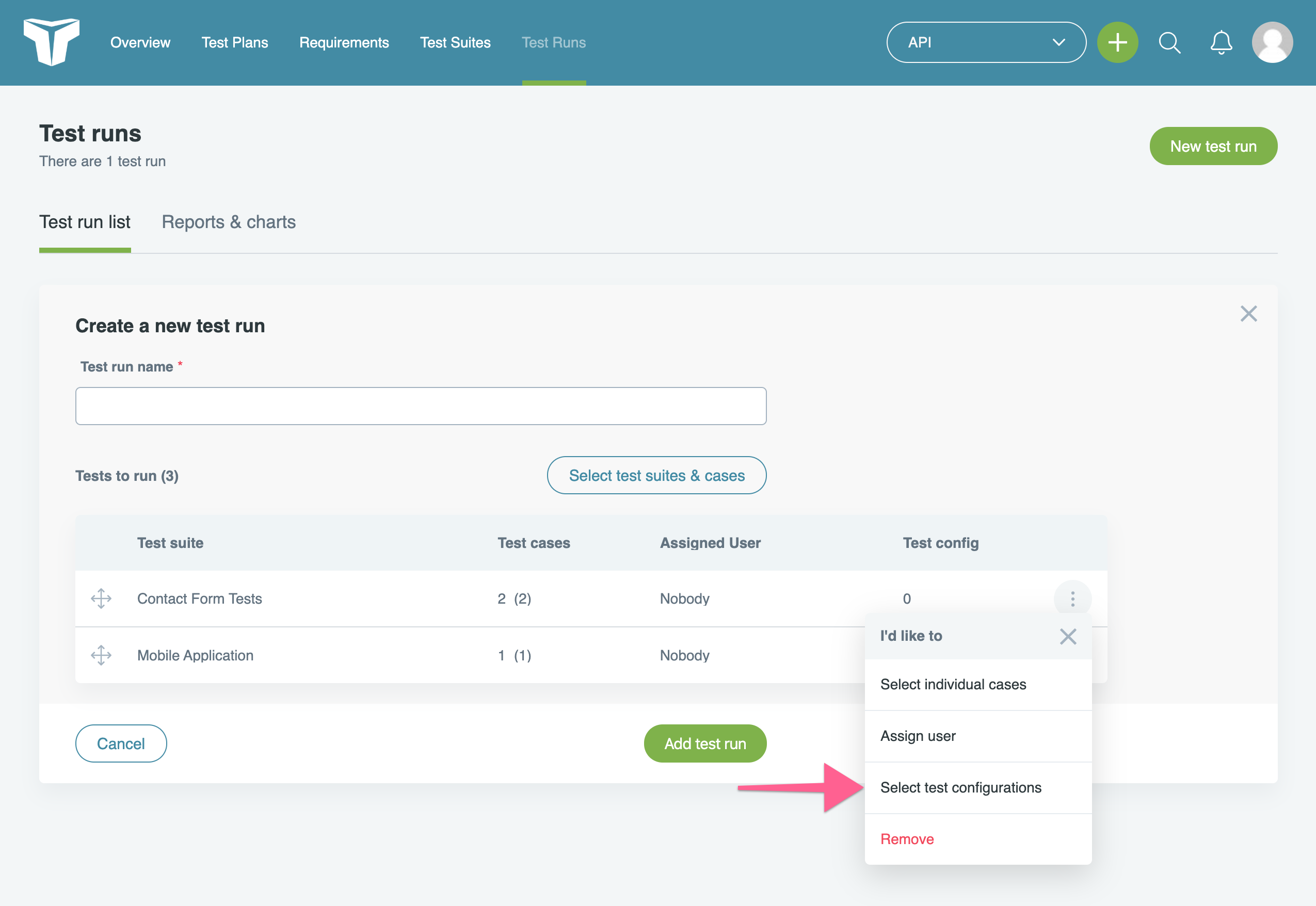
Next, you can select the existing test configurations or create your own.
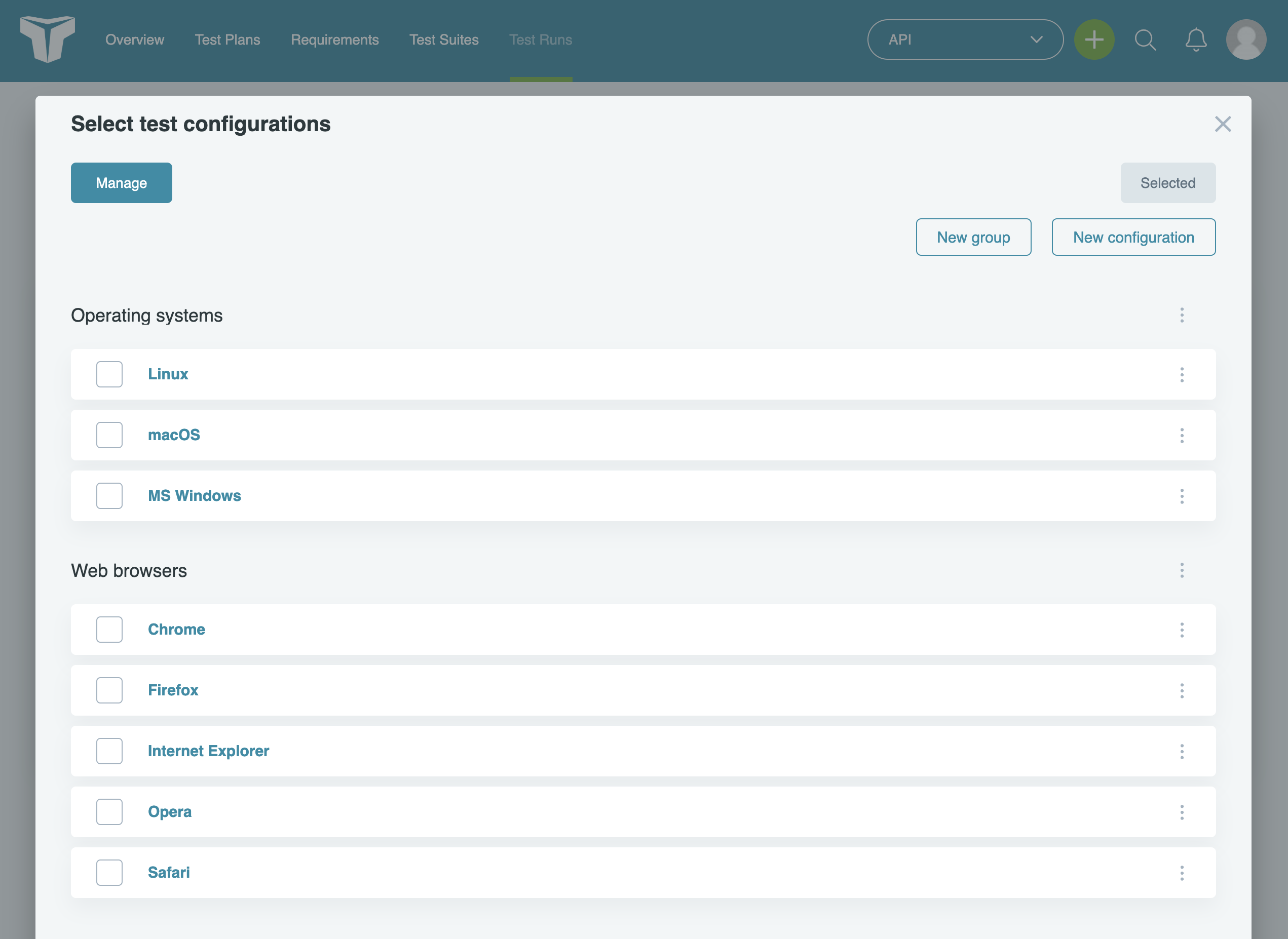
Executing a Test Run
Here’s a quick overview of executing Test Runs
During a test run, each test case is displayed for the tester to follow the test steps and record results. TestLodge allows you to mark each test as “pass”, “fail”, or “skip”. You can also add comments/actual results, as well as attach images. This comes in handy in showing visual discrepancies or bugs.
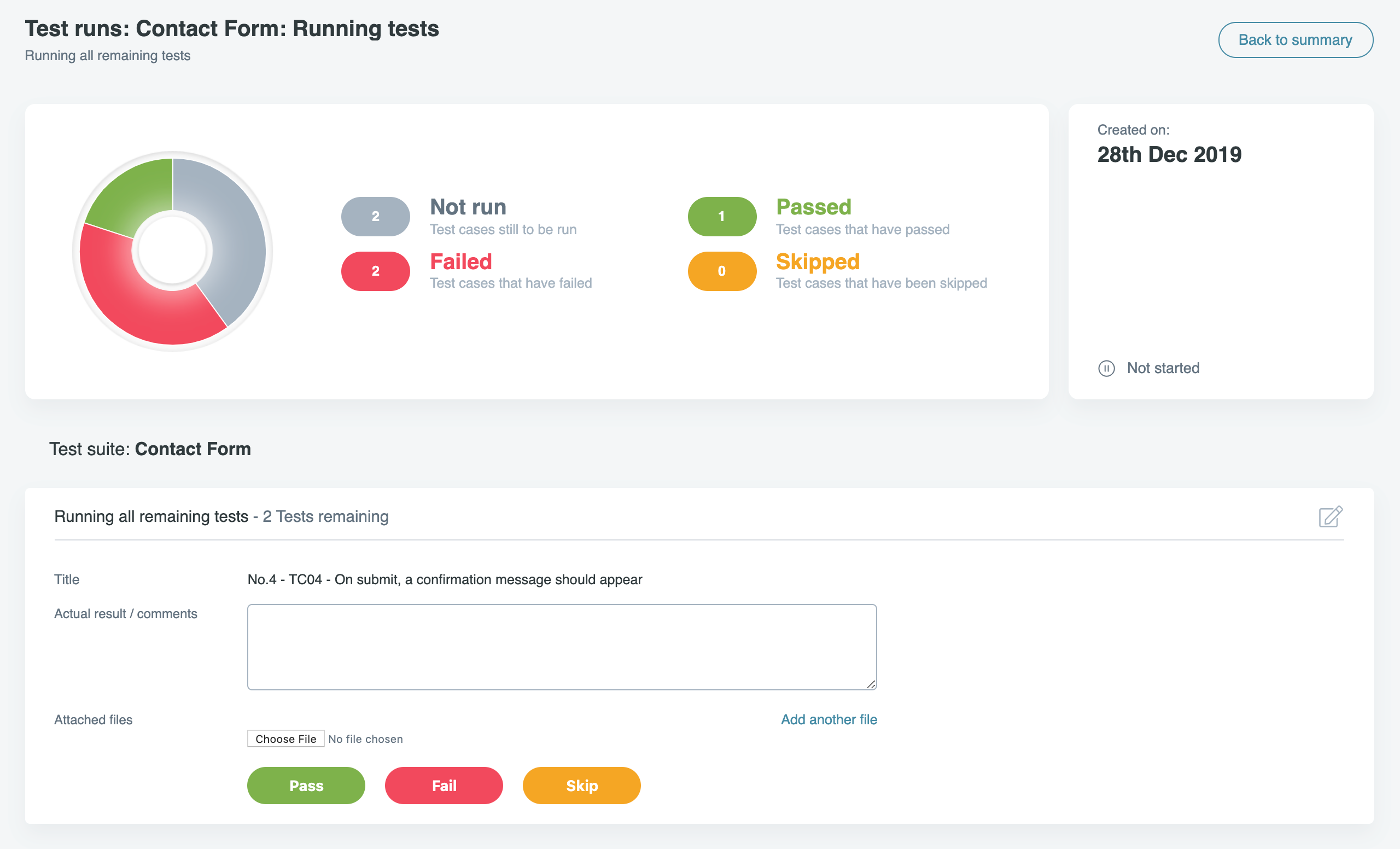
Re-running Tests
You can re-run tests that have already been ran. For example, you might want to re-run all “failed” tests. You can do that by opening a Test Run and clicking Re-run Tests from the 3-dot options menu.